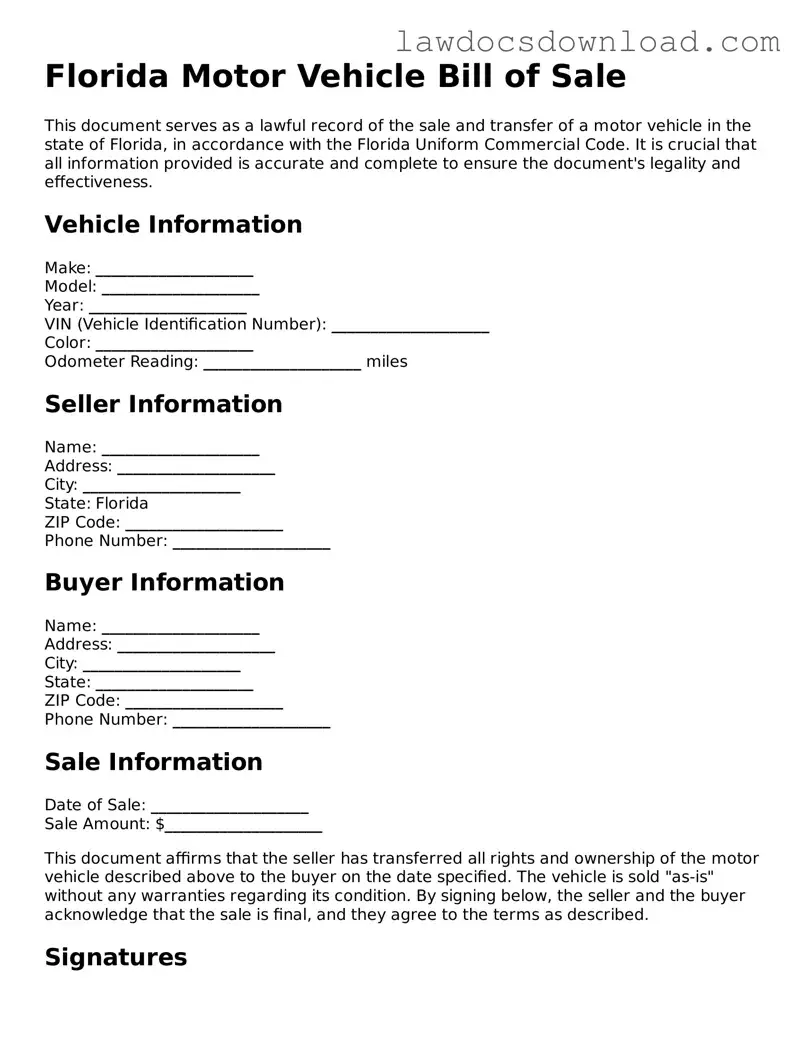Legal Florida Motor Vehicle Bill of Sale Form
The Florida Motor Vehicle Bill of Sale form is a legal document that records the sale of a vehicle from one party to another within the state of Florida. This form serves as proof of transaction and is necessary for the transfer of ownership. It outlines the details of the sale, including the purchase price, vehicle description, and the personal information of both the buyer and seller.
Launch Motor Vehicle Bill of Sale Editor Here

Legal Florida Motor Vehicle Bill of Sale Form
Launch Motor Vehicle Bill of Sale Editor Here

Launch Motor Vehicle Bill of Sale Editor Here
or
Free Motor Vehicle Bill of Sale
Get this form done in minutes
Complete your Motor Vehicle Bill of Sale online and download the final PDF.